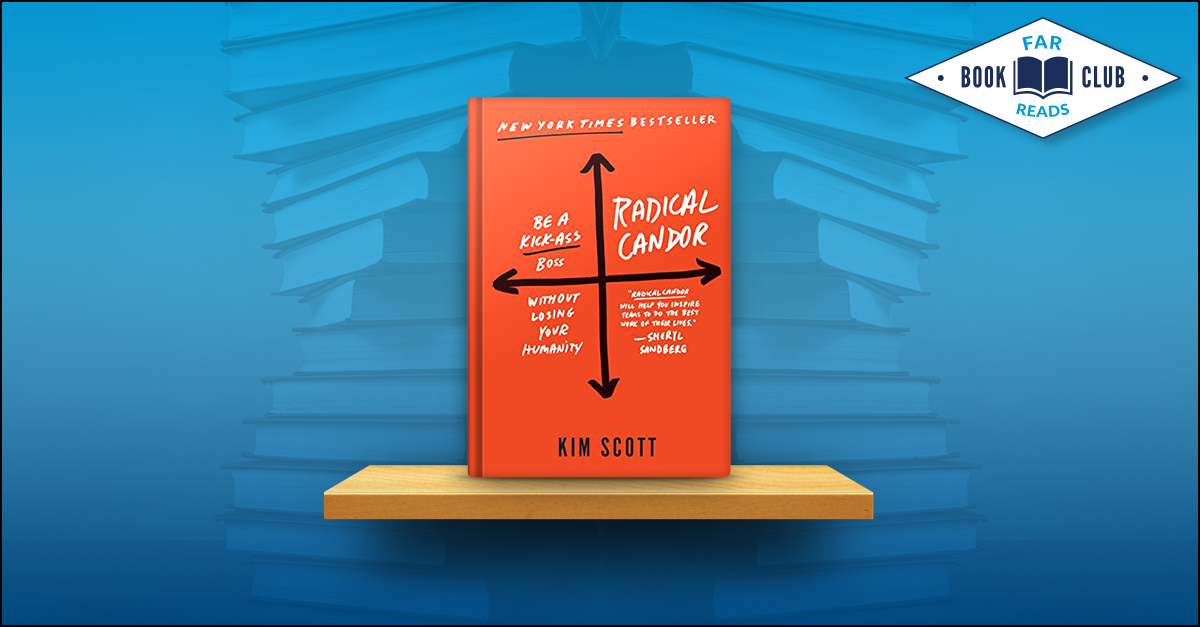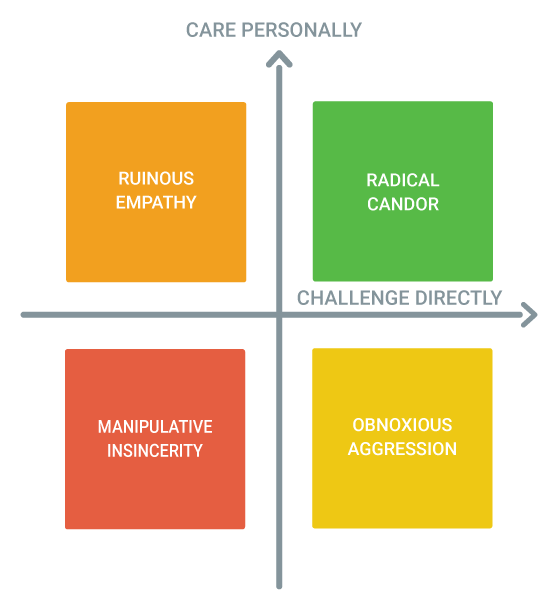
Our latest Far Reads book club pick was “Radical Candor” by Kim Scott. Here’s our recap.
Who Selected It
Kate Washut
Why We Selected It
Our team falls into the “Iowa nice” stereotype. I’m definitely not complaining, but being nice sometimes comes with a fear or discomfort of saying the things that need to be said but are hard to hear.
We wanted to use this book to get a bit more comfortable giving open and honest feedback (#FRCV3).
Turns out, being nice and giving honest feedback don’t have to be at odds with each other.
What It’s About
Radical Candor is about how to give feedback while retaining your humanity. It’s actually directed toward bosses and those in leadership positions, but we felt like the concepts would resonate with our entire team.
The core concepts behind radical candor are caring personally and challenging directly. In other words, when you care about and are willing to have hard conversations with people, you can do so with empathy and understanding.

Image Source: Radical Candor
Lessons Learned
One thing that really stuck with the team is the concept of work-life integration. You’re probably more familiar with the term “work-life balance.” We don’t want work and life to be a balancing act. We want work to be an important
and fulfilling part of our team’s lives, not just somewhere they have to go sit for 8 hours a day.
We also got a lot of great tips on how to give feedback—and how to do so with relationships as the foundation. For example, the book talks about how emotions are inevitably in play during a candid conversation. Despite our instincts, it’s
important to acknowledge and deal with these emotions, not just dismiss or avoid them. Easier said than done, but we’re working on it!
In turn, asking for feedback is just as important as giving it. We learned two great ways to open a dialogue without using the vague, “Do you have any feedback for me?”
- Is there anything I could do (or not do) to make your job easier?
- What’s something I should hear that no one wants to tell me?
When you’re soliciting this information, your job is to listen with intent, not to respond in the moment.
Our Favorite Quote
"If you can build a trusting relationship with people so that they feel free at work, then they're much more likely to do the best work of their lives. But you're not ‘getting it out of them;" you're creating the conditions for them to bring it out of themselves.”
How We’re Applying What We Learned
After reading this book together, we’re all on the lookout for opportunities to provide candid feedback. We’re holding each other accountable for expressing what we think and doing so directly but with humanity. Since we all read the same
book, we can speak the same language around the topic and I think that gives us a huge advantage for mutual understanding.
We’re also looking at restructuring our one-on-one touch base meetings to integrate some of what we learned and foster a two-way feedback loop.
We haven’t picked our next book yet, but you can look for a recap of whatever it may be in a few months!